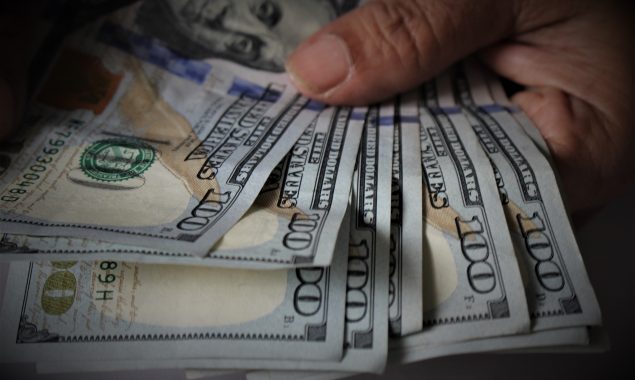
ISLAMABAD: The massive rupee devaluation has negatively affected the Pakistan economy and the worst victim is the energy sector, which meets 40 per cent of its demand through imported fuel.
“The devaluation of [the] rupee increases the cost of doing business and eventually it discourages investment climate,” Overseas Investors’ Chamber of Commerce and Industry vice president Ghias Khan said, while unveiling the recommendations of the OICCI on Thursday.
The collective voice of top foreign investors in Pakistan said the rupee devaluation may create a positive impact on exports but overall it’s a bad omen for the country.
Khan proposed liberalisation and transformation of the monopolistic power market into a multi buyer-seller marketplace, considering that the exclusivity to sell and distribute power for the distribution companies is scheduled to terminate in 2023.
This will create options for the power purchasers, as well as producers to enter bilateral deals, i.e., energy sale via B2B mode through a fair and transparent wheeling regime.
The OICCI official, while unveiling the salient features of its “OICCI Energy Recommendations 2021”, said that these focus on implementing an efficient and cost-effective energy supply chain, while increasing the share of green energy sources to meet the environment and sustainability milestones.
The detailed recommendations have recently been presented to the Ministry of Energy and other relevant stakeholders, he said.
Highlighting the key elements, Khan emphasised that the OICCI’s proposed recommendations are the collective view of leading energy sector professionals associated with it.
“We are confident that the proposed recommendations will be instrumental in the government of Pakistan’s continued endeavour towards reforming the overall energy sector and bringing it at par with [the] international standards. These steps shall also be indispensable in meeting the growing energy demand in the country at an optimal cost, making us internationally competitive for export and primed for the economic growth of the country,” he said.
The OICCI Energy Report includes separate proposals for the power, upstream, downstream, LNG, and renewable work streams.
The downstream policy framework and structure should be revised to exhaustively cover all aspects of governance, including, but not limited to, review of the price structure by moving towards price deregulation, supply chain management focusing on the issues with logistics infrastructure, including the existing port constraints due to insufficient unloading capacity, long waiting time, vessel planning, import dependency, and need for building strategic stocks by increasing storage capacity.
On a priority basis, there should be a mutually agreed mechanism for periodic revisions in the downstream price structure, more specifically margins, to ensure it remains reflective of the actual costs to the oil marketing companies; followed by the complete deregulation of motor spirit and high-speed diesel that constitute around 80 per cent of the total petroleum products consumption.
OICCI chief executive and secretary general M Abdul Aleem said: “Pakistan should leverage the global resolve to combat climate change and take benefit of the pool of funds available for investment in the renewable energy, such as the “Green Climate Fund” (GCF), to underwrite debt issued by the local and foreign banks that will eventually encourage more investments and grow the renewable energy footprint, resulting in lower cost of power.
Further, increasing power generation from renewable energy is also critical for achieving net zero carbon emission by 2050 as per the Paris Climate Agreement.
The recommendations also voiced for the development of the LNG sector by fast-tracking all projects that will create additional pipeline capacity for the new LNG terminal developers and/or existing terminals looking to expand.
The OICCI appreciated the government authorities in issuing licences and approvals for the two new terminal developers in September last year but asked the authorities to facilitate the existing customers at the LNG terminals to sign off on the Terminal Coordination Agreement (TCA) to address the shortages that is likely to occur till such time these terminals come online.
Further, it highlighted the urgency of revamping the bidding process for granting exploration licences and encouraging exploration and development of unconventional hydrocarbon resources. Interest by both private domestic and foreign E&P companies has declined due to low potential of the offered blocks.
The government should assign higher priority to the local E&P industry to keep the energy import bill low, as the locally-produced primary energy is far more economical than the imported one. This could be achieved if the government frequently offers new exploration concessions and open acreages for bidding and makes the regulatory management of the existing concessions efficient, it suggested.
The OICCI Energy Recommendations 2021 is the collective effort of the 33 OICCI members who are associates of leading international players working in the areas of oil exploration, refining, marketing and distribution, coal mining, and power generation segments.
These members cumulatively contribute over Rs700 billion to the national exchequer annually and employ a large number of skilled and professional staff.
Catch all the Business News, Breaking News Event and Latest News Updates on The BOL News
Download The BOL News App to get the Daily News Update & Follow us on Google News.




